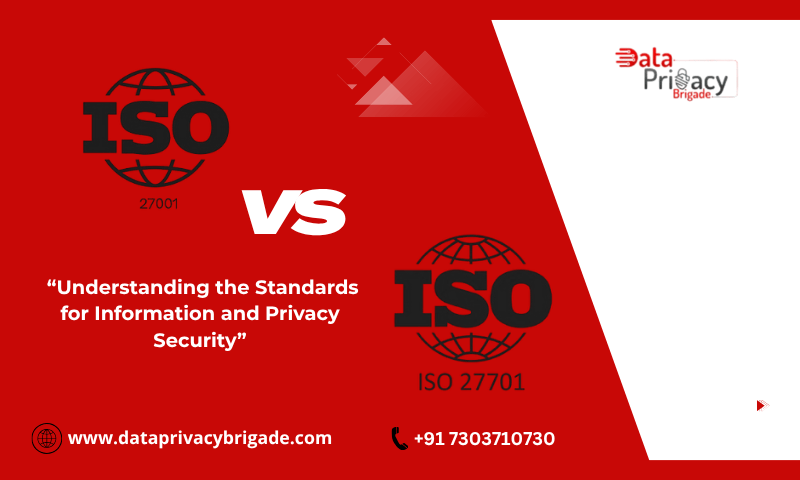ISO 27001 vs ISO 27701: Understanding the Standards for Information and Privacy Security
While ISO 27001 is focused on securing information assets through a structured risk management approach, ISO 27701 extends that security framework to include privacy-specific requirements related to personal data. In essence, ISO 27001 helps organizations protect data from threats like unauthorized access or breaches, whereas ISO 27701 ensures that data is handled in a way that respects privacy rights and complies with regulations like GDPR. Together, they form a powerful, integrated management system that addresses both cybersecurity and data privacy, offering organizations a competitive advantage and a strong foundation for regulatory compliance.
The Foundations of ISO 27001: Building Information Security from the Ground Up
While ISO 27001 provides a solid foundation for securing information in general, it does not focus specifically on personal data protection or privacy management. That is where ISO/IEC 27701 comes in. Published as an extension to ISO 27001 (and ISO 27002), ISO 27701 introduces requirements and guidance for establishing a Privacy Information Management System (PIMS). It is designed to help organizations comply with global data protection regulations such as the General Data Protection Regulation (GDPR), California Consumer Privacy Act (CCPA), and others.
ISO 27701 builds on the existing ISMS framework of ISO 27001 by adding controls and processes specifically related to personal data. These include policies on data subject rights, lawful basis for processing, data minimization, consent management, privacy by design, and data sharing agreements. It distinguishes between two types of roles: data controllers and data processors, providing tailored requirements for each. By aligning with ISO 27701, organizations can operationalize privacy principles, reduce compliance risks, and build trust with customers and stakeholders.
Introducing ISO 27701: The Privacy Extension to ISO 27001
While ISO 27001 provides a solid foundation for securing information in general, it does not focus specifically on personal data protection or privacy management. That is where ISO/IEC 27701 comes in. Published as an extension to ISO 27001 (and ISO 27002), ISO 27701 introduces requirements and guidance for establishing a Privacy Information Management System (PIMS). It is designed to help organizations comply with global data protection regulations such as the General Data Protection Regulation (GDPR), California Consumer Privacy Act (CCPA), and others. ISO 27701 builds on the existing ISMS framework of ISO 27001 by adding controls and processes specifically related to personal data. These include policies on data subject rights, lawful basis for processing, data minimization, consent management, privacy by design, and data sharing agreements. It distinguishes between two types of roles: data controllers and data processors, providing tailored requirements for each. By aligning with ISO 27701, organizations can operationalize privacy principles, reduce compliance risks, and build trust with customers and stakeholders.
One of the major advantages of ISO 27701 is that it allows organizations to integrate privacy into their existing information security practices. This unified approach is more efficient and effective than managing privacy and security separately. It also makes it easier for organizations to demonstrate accountability and transparency in their handling of personal data, which are key principles under modern privacy laws.
Key Differences Between ISO 27001 and ISO 27701
In comparing ISO 27001 and ISO 27701, it’s important to recognize that they are not competing standards but rather complementary. ISO 27001 provides the foundational ISMS needed to protect all types of information, while ISO 27701 extends that foundation to address privacy-specific requirements. Achieving ISO 27001 certification is typically a prerequisite for pursuing ISO 27701, as the latter relies on the structures and processes defined in the former. For organizations that process significant amounts of personal data, such as those in e-commerce, healthcare, education, or cloud services, adopting both standards makes strategic sense. ISO 27001 ensures robust protection of information assets, while ISO 27701 demonstrates due diligence in managing personal data in compliance with privacy laws. Together, they offer a holistic framework for information and privacy security.
Implementation of these standards also signals to clients, partners, and regulators that the organization takes security and privacy seriously. It enhances the organization’s reputation, improves customer trust, and can open up new business opportunities, especially in markets or sectors where data protection is a contractual or regulatory requirement.
The Strategic Benefits of Adopting Both ISO Standards
The process of implementing ISO 27001 and ISO 27701 involves several stages, including gap analysis, risk assessment, policy development, control implementation, training, internal audits, and finally, third-party certification. While the journey requires time and resources, the benefits in terms of reduced risk, improved compliance, and enhanced competitive advantage make it a worthwhile investment.
In summary, ISO 27001 and ISO 27701 are critical tools for any organization seeking to secure its information and ensure compliance with privacy regulations. ISO 27001 lays the groundwork for comprehensive information security management, while ISO 27701 builds on that foundation to address the increasingly complex challenges of data privacy. By implementing both standards, organizations can create a resilient, integrated system that protects not only their own assets but also the personal data entrusted to them. In an era where data breaches and privacy concerns are front-page news, embracing these standards is not just smart – it’s essential.

